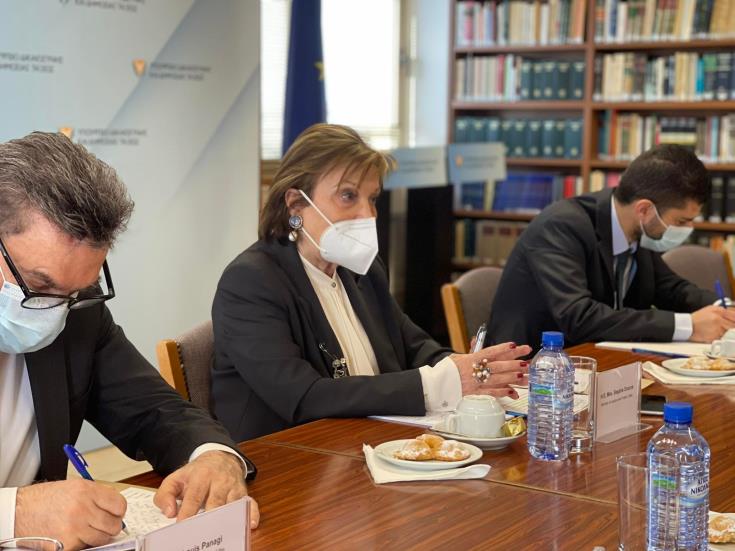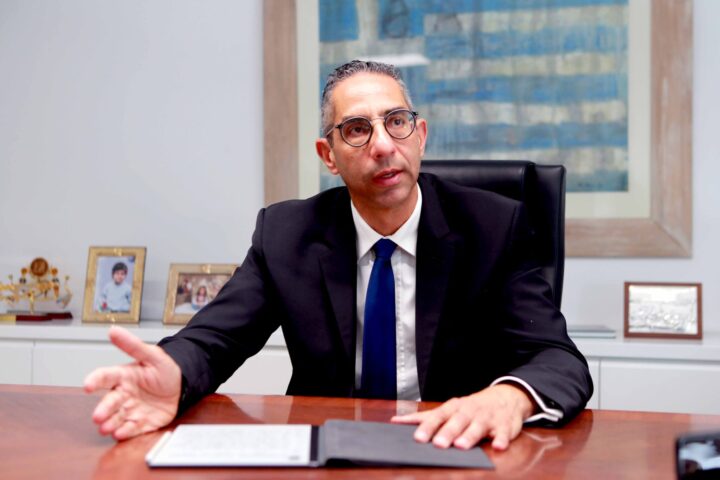After four years of languishing in Parliament, legislation establishing a national anti-corruption agency to conduct real-time audits on politicians and their asset declarations was approved by MPs.
Justice Minister Stephie Drakou welcomed the move as a first step towards setting up an institutional shield against corruption, along with rules on lobbying.
“Transparency is now guaranteed, and we are faced with the next big responsibility, which is the practical implementation of the project and the effective implementation of the laws,” said Drakou.
“Cyprus is now included in the list of the few European countries that have acquired a modern and comprehensive anti-corruption legal framework, in line with the requirements of the European Union and the Council of Europe”.
Drakou said she did not expect the phenomena of corruption to be eliminated with the new laws.
“But we now have the tools to prevent it, to identify suspects, to deal with them, to bring them before Justice.”
The new law creates a five-member committee that monitors state officials’ assets, dealings, and interests.
It establishes an advisory board with a retired judge appointed by the Supreme Court, presidents of the Cyprus Bar Association, Association of Certified Public Accountants, and university rectors.
The five-member authority selected by the President of the Republic will be the go-to body to report suspected corruption in the broader public sector.
The anti-corruption authority’s members will serve a six-year term.
The body will act on complaints of misfeasance of high-ranking officials in the broader public sector.
It will also be tasked with looking into reports about private companies dealing with the state.
Another bill regulating lobbying and scrutinising politicians’ links to interest groups was also passed on Thursday.
The two laws follow the adoption of legislation offering protection to whistle-blowers voted in earlier this month.
These bills attempt to enhance Cyprus’ efforts to rid itself of the ill-repute tied to the lavish way golden passports were dished out.
Some damning reports tie Cypriot officials to international scandals like the Panama and Pandora papers.
Cyprus has been sliding down corruption and democracy indices in the past years.
Corruption watchdog Transparency International says Cyprus has lapsed in its battle against sleaze, making little progress over a decade, despite recent measures ushered in by Parliament.
In its Corruption Perceptions Index 2021 (CPI), Cyprus slipped 10 places.
It is now ranked 52 among 180 countries, falling from 42 in 2020.
In addition to the rankings, countries also receive a score of 0 to 100, where zero means highly corrupt, and 100 means very clean.
Cyprus’ 2021 score was 53, dropping from 57 in 2020 and 58 in 2019.
In recent years, the government and the political system have been accused of sweeping corruption under the carpet following revelations of sleaze in high places.
In November 2020, Nicosia dropped its golden passport scheme after Al Jazeera aired a documentary showing reporters posing as fixers for a Chinese businessman seeking a Cypriot passport despite having a criminal record.
Voting in the legislation was a prerequisite for Cyprus to be eligible for the next instalment of the EU Recovery and Resilience Fund.
Public access to information is restricted to prevent ‘witch hunts’ of people coming forward with information against state officials.
And the anti-corruption body will step down if there is an active police investigation in the same case.










